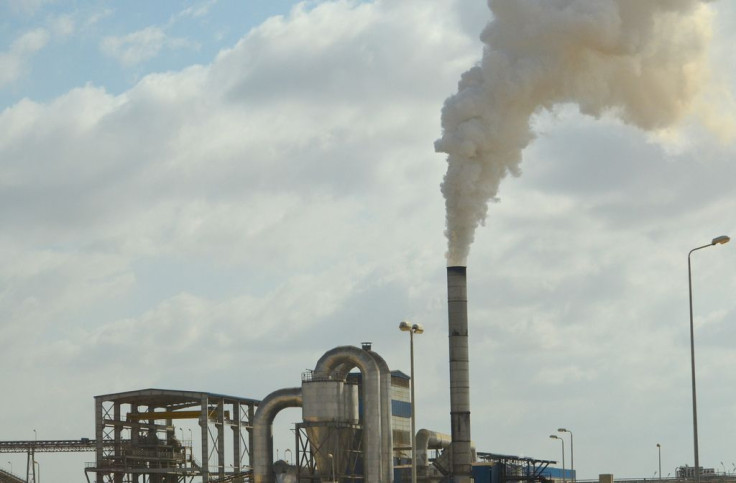Air Pollution Linked To 8,000 Cases Of Heart Failure Hospitalizations Every Year

The World Health Organization estimates that air pollution is responsible for more than a million premature deaths worldwide every year and brief exposure can harm people susceptible to cardiac issues. According to a 2000 study, heart failure affects more than 23 million people worldwide and ranks as the most frequent reason for hospitalization in older people. Could the two be inextricably linked?
In a new study, researchers analyzed the effects increasing air contaminants on heart failure hospitalizations and deaths. The specific air contaminants considered were carbon monoxide, sulfur oxide, nitrogen dioxide, and particulate matter, which can be anything small and inhalable.
Heart failure, commonly referred to as congestive heart failure, occurs when the heart becomes unable to pump enough to maintain blood flow and meet the body's oxygen needs. As a result, it can cause a number of symptoms like shortness of breath, leg swelling, immobility, and death. There is no cure for the disorder, but it can be managed by lifestyle changes, such as diet and exercise. In extreme cases, pacemakers can be used to help the heart beat more effectively, but this is only a temporary fix, as the condition usually worsens with time. Around 10-percent of people over the age of 65 suffer from heart failure.
Researchers compared studies of each of the individual pollutants and their effects on heart failure. Carbon monoxide was the most studied pollutant and caused a 52 percent increase in heart failure related hospitalizations. Particulate matter was also associated with the development of heart failure.
The researchers noted that levels of exposure did alter the development of heart failure. In fact, the amounts required to cause heart failure were so small that even short term exposure could cause negative effects. Heart failure rose by four percent with every increase of one part per million of carbon monoxide, three percent for every increase of 10 parts per billion of sulfur dioxide, two percent for every 10 parts per billion increase in levels of nitrogen dioxide, and by about two percent for every increase of 10 micrograms per cubic meter of particulate matter. Each of these amounts is incredibly small, indicating a need to lessen global pollution, instead of advising individuals to avoid pollution that is ubiquitous.
Risks were highest on the day of exposure. Though long term studies of the effects of air pollution have not yet been performed, short term effects appear to be effective at increasing risks of heart failure, especially in those who have pre-existing heart failure.
Although particulate matter is considered to be responsible for most adverse cardiovascular outcomes, the effect of non-particulate, or gaseous, air pollutants either alone or in combination, is still harmful.
"While the role of air pollution is well recognized as a risk factor for heart attacks, it has been less clear whether exposure increases the risk of adverse events in patients with other cardiovascular conditions like heart failure," says Nicholas L. Mills, MBChB, senior author of the study. "Since the entire population is exposed to air pollution, even modest reductions in air pollution could have major cardiovascular health benefits and substantial healthcare cost savings."
Reductions in air pollution should remain a target for policymakers. Many states are doing what they can to measure and reduce air pollution. The researchers found that Kentucky, West Virginia, and Tennessee were able to reduce heart failure related hospitalization by reducing particulate matter pollution in the air.
While some headway has been made in reducing air pollution, heart failure caused by air pollution is still a serious health issue that costs patients millions of dollars to manage. Less air pollution would make a great deal of difference to people suffering from heart failure. The researchers estimate that a modest reduction in levels of just one major pollutant like carbon monoxide or particulate matter could prevent 8,000 heart failure hospitalizations and save Americans more than $300 million every year. More studies are needed to establish the effect of air pollution on heart failure outcomes in middle- and low-income countries. However, the results are clear: air pollution is harming our health and reducing the quality of life of those most susceptible to cardiovascular issues, and changes must be made.
Source: Shah ASV, Langrish JP, Nair H, et al. Global Association of Air Pollution and Heart Failure: A Systematic Review and Meta-Analysis. The Lancet. 2013.
Published by Medicaldaily.com



























